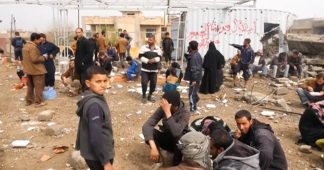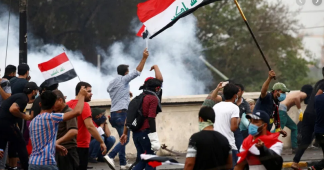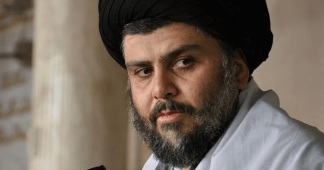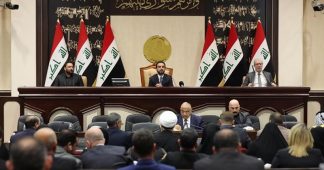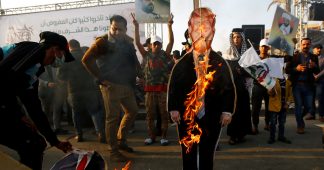Kelley Beaucar Vlahos
December 29, 2020
What does it look like when you “liberate” a country that hasn’t asked for it, when you unleash a violent chain of events creating the conditions for an even worse tyranny than before?
Those who witnessed Iraq in the wake of the American invasion in 2003, the failures of reconstruction, and the rise and fall of ISIS, say one need look no further than that country today to get your answer.
The Washington Post last week reported that there are still a million internally displaced Iraqis who fled the 2014 takeover of ISIS and the ensuing war to overthrow it — with many living in soon-to-be-shuttered government-run camps. Meanwhile, COVID has sent an already fragile economy spiraling toward collapse, with salaries in the major cities left unpaid, reconstruction projects stalled or completely aborted. A new central government is still trying to find its legs, more than a year after deadly street protests washed over the country. According to experts who spoke with RS, direct attention from the Western powers that sent this country on its present course is scattershot, with aid easily corrupted by a burgeoning kleptocracy across the provincial governments and Baghdad.
“The trauma on Iraq has been despicable,” said Abbas Kadhim, who spent his own youth in an Iraqi IDP camp in the 1990s before coming to the United States, where he observed the 2003 war and its aftermath from a distance. Now he is the director of the Iraq Initiative at the Atlantic Council in Washington, trying to rebuild broad diplomatic and political bridges with Baghdad.
“This is really the part we have to reckon with when we talk about what happened in Iraq and what it will take to build back. There are things going on in that country that will take decades to undo,” he said in an interview with RS.
Peter Van Buren, a former U.S. foreign service officer who spent a year in Iraq leading two provincial reconstruction teams, later wrote about it in “We Meant Well: How I Helped Lose the Battle for Iraqi Hearts and Minds,” in 2012. He often talks about his disgust with the arrogance of the American project to remake the country in its own image, only to abandon it when the effort became untenable.
“It is part of the American way of making war, arriving unwanted in a third world country with promises to liberate, and then leaving as our domestic politics (or just losing) turn that war into an unwanted child,” he said in an email to RS.
Elijah Magnier spent years as a war correspondent in several major Iraqi cities during the war, including Baghdad at the height of the insurgency. To his mind, the United States left everything — the carnage of hundreds of thousands of dead Iraqis, the cratered cities and towns, the toxic environment, the terrorist breeding ground and sectarian strife — behind, with impunity.
“That’s not the way it works, we’re dealing with human beings here,” he said in a recent interview. “So the U.S. removed Saddam Hussein — who was a bad person and I’m glad he’s gone — but you don’t interfere in countries where the population isn’t ready. When people are ready, they will remove their own leaders. If not, it doesn’t work.”
While that point seems to have been taken by numerous American scholars and military strategists in the years since, the lessons are far from academic in Iraq. They are visceral and ongoing.
“(The Iraqis) did all of the heavy lifting in this war,” said Kadhim, pointing in particular to the years after the U.S. began its withdrawal in 2009. At that point, the remnants of the Al-Qaida post-invasion insurgency, which was supposedly vanquished by the U.S. military “Surge” from 2007 to 2008, was already regrouping in the form of a more deadly, more powerful ISIS (ISIL, or Daesh).
Hobbled by corruption, ineffective intelligence, and festering sectarianism ignored if not inflamed by the Shitte administration of then-Prime Minister Nouri al-Maliki (Washington’s man in Baghdad), the U.S.-trained Iraqi military didn’t stand a chance. As the United States was preparing to leave in 2009, then-Gen. Ray Odierno said the Iraqi forces were “ready” to take on their own security. In 2014, as ISIS raced across Iraq like a cancer, they fled. Several divisions “evaporated,” with 60 out of 243 battalions unaccounted for, all equipment lost.
Continue reading responsiblestatecraft.org

